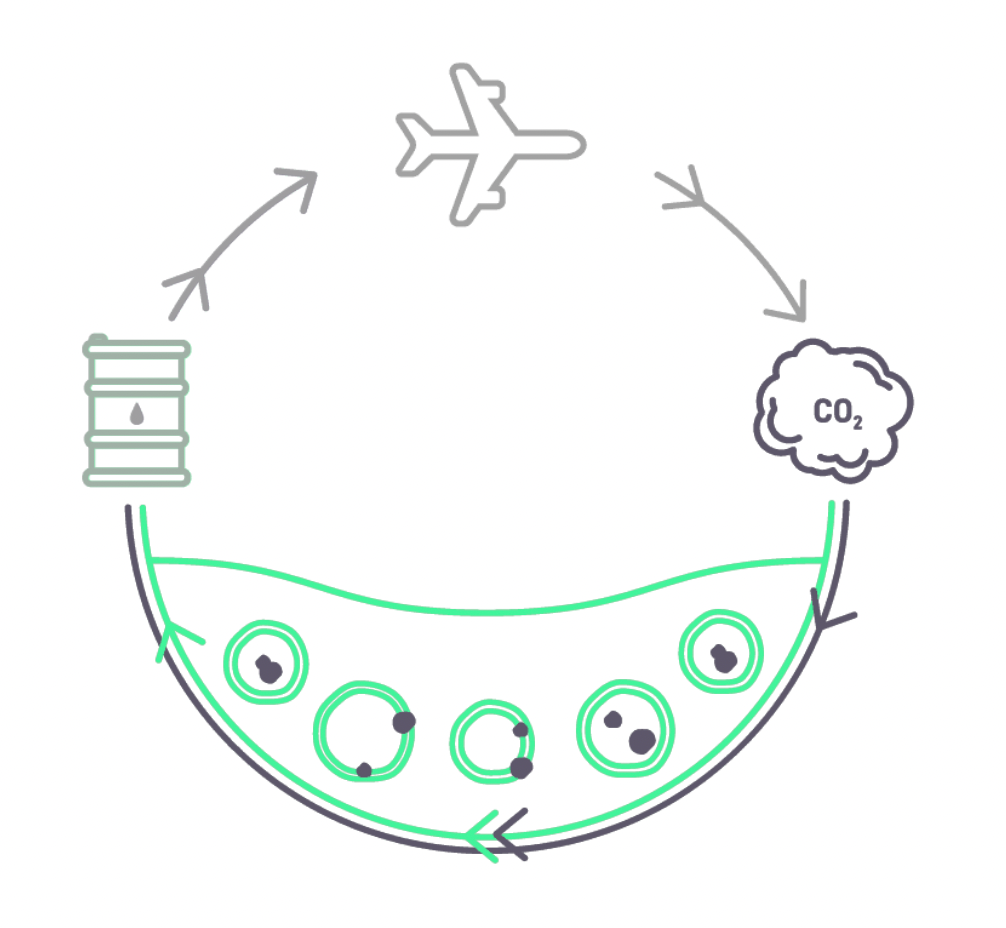An Algae Awakening
Could algae oil help end our reliance on fossil fuels? | By Kira Hobkirk

Algae can reduce our dependence on finite and harmful fossil fuels. These photosynthetic organisms, found in diverse aquatic territories, offer a cleaner and more reusable energy future through biofuel production.
Algae uses photosynthesis to convert sunlight and carbon dioxide into energy-rich compounds that can be harvested for biofuel extraction. Unlike traditional crops, algae can be cultivated in a wide range of habitats, from freshwater ponds and oceans to wastewater treatment facilities. This reduces the environmental impacts associated with large-scale agriculture. There's no need for arable land or fertilisers.
Phycobloom is one company looking to harness algae's potential as a fuel source by sustainably extracting algae oil without destroying the organism. Dr John C. Waite, the CEO of Phycobloom, told Footprint that a significant advantage to algae biofuel production is its potential to mitigate greenhouse gases in the atmosphere to aid in the fight against climate change.
“The renewability of biofuels is entirely based on where the carbon comes from," said Waite. "Engines will still produce carbon but this is then drawn back down by the algae”.
During photosynthesis, algae absorb carbon dioxide and utilise it during their growth process, effectively acting as a carbon sink and offsetting carbon emissions all while producing fuel. This contrasts with burning fossil fuels which releases detrimental gas. Algae cultivation systems could even be placed near industrial facilities to capture the CO2 emissions directly, creating a symbiotic, circular relationship.
Once the algae oils have been extracted, they are sent to a chemical plant where they can be converted into useable biofuels. This is because the raw oils are “biological like vegetable oil” which means they can’t be burned to produce the sort of energy that can be derived from from fossil fuels. Throughout this conversion process, the “double bonds and oxygen are removed to create a straight hydrocarbon”, ultimately creating a renewable fossil fuel. As Waite says, biofuels aren’t entirely “dissimilar” to fossil fuels, what matters is that they come from a renewable, carbon-hungry source.

Research developing algae-derived jet fuel and hydrogen production is already underway. According to Waite, Phycobloom’s overall goal is to “make biofuels live up to their potential” and produce sufficient amounts of carbon-neutral biofuels to be able to power those industries and sectors that still rely on fossil fuels.
For example, Waite states that he doesn’t want anyone getting on a plane to “feel any guilt about their emissions” or to have a destructive effect on the world around them.
However, scaling up the production to meet the huge global energy demand while remaining cost-effective is still a work in progress. Researchers are actively working on progressing efficient methods of cultivation, exploring genetic modification, generating more economically viable procedures, and optimising extraction techniques to make algae biofuels more competitive with traditional fossil fuels. As this area grows, it could also stimulate employment within in cultivation, harvesting, processing, research, and development.
When asked if companies could reduce expenses by selling the biomass of algae, Waite elucidates that “co-production is a common way to reduce costs” with many uses including creating fertilisers, packaging, and carbon sequestration tools to make manufacturing more efficient.
With its circular, carbon-neutral potential—creating fuel from the emissions of that same fuel—algae biofuel is a particularly compelling fossil fuel alternative for applications where wind and solar aren't fully effective, such as air travel. As the world continues to seek sustainable alternatives to fossil fuels, algae is emerging as another beacon of hope in the transition towards a cleaner, more renewable energy future.
Written by Kira Hobkirk

